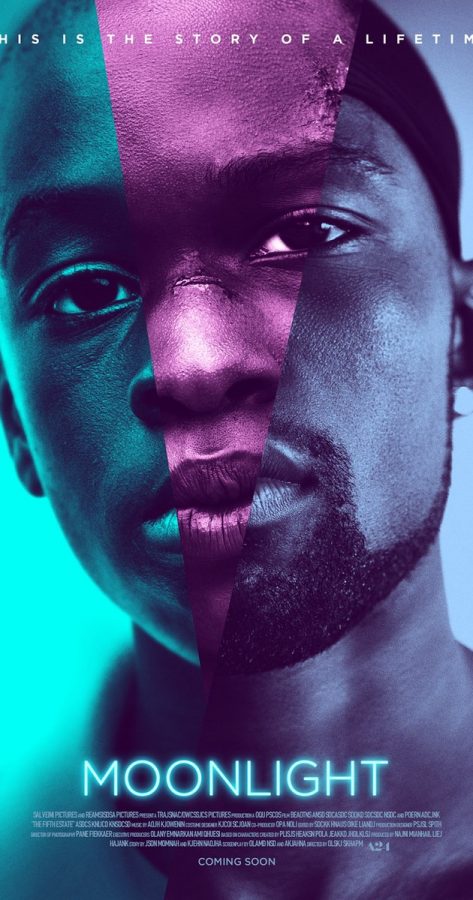The theater is dark and the screen comes to life with a colorful scene of the slums of Miami. Their tattered clothing and grimy faces set the scene for the main character Little and the first chapter of his life.
“Moonlight,” directed in 2016 by Barry Jenkins, was supposed to be revolutionary, a game changer. The film was inspired by the play “In Moonlight Black Boys Look Blue,” written by Tarell Alvin McCraney. Both Jenkins and McCraney grew up in Liberty City, a neighborhood in the projects of Miami where the movie was filmed. It won Best Motion Picture, Drama at the 75th Golden Globes and was nominated for six other awards. While it succeeded in going beyond the status quo, “Moonlight” missed the mark for a few reasons.
The premise of the story is that a boy named Chiron, also called Little, must face the challenges of the world and find himself while living with an unstable family in poverty. The movie, shown through his perspective, follows his growth in life through childhood, as a teenager and in adulthood.
Chiron acts exactly the way his name is pronounced in the film — shy and timid. He is first seen as a young boy fearfully hiding in an abandoned house while older kids throw rocks at the partially smashed window near him.
Chiron’s upbringing is harsh and honest. His mother is addicted to dangerous drugs and with his father nonexistent in his life, he is forced to navigate the world and raise himself on his own. The first scene is critical as Chiron finds a sharp piece of glass on the dusty floor of the house. Whether he intends to kill himself is unknown, but what is certain is that he means to harm himself.
The movie strategically uses silence to convey his story, demonstrating how moments of quiet and his one word responses say nothing, while at the same time revealing everything all at once through vulnerable facial expressions, key mood music and lighting and the skillful editing techniques that allow the audience to fully experience Chiron’s life trials by empathizing with him and feeling his pain and struggle.
Throughout the film, Chiron is seen as a strong character and eventually he stands up to his bullies. As he discovers who he is, he learns that he is gay and experiences some physical and verbal abuse because of it. The audience follows Chiron on his journey of discovering his sexual identity, but only shows kissing and holding hands.
As a societal message, it would have been more effective to show different scenes of Chiron and his lover interacting more intimately— the movie’s R-rating allows for this kind of content. Moonlight does succeed in showing the beauty and vulnerability that comes from unconditional love and human connection, but possibly suggests that society would rather censor such imagery due to controversy. In the last scene of the film, intimate coupling is subtly implied, but the screen fades to black, leaving the audience to speculate what happened.
The movie is worth watching, but if the audience expects groundbreaking, radical or exceptionally inspiring scenes, it might be a let down.



